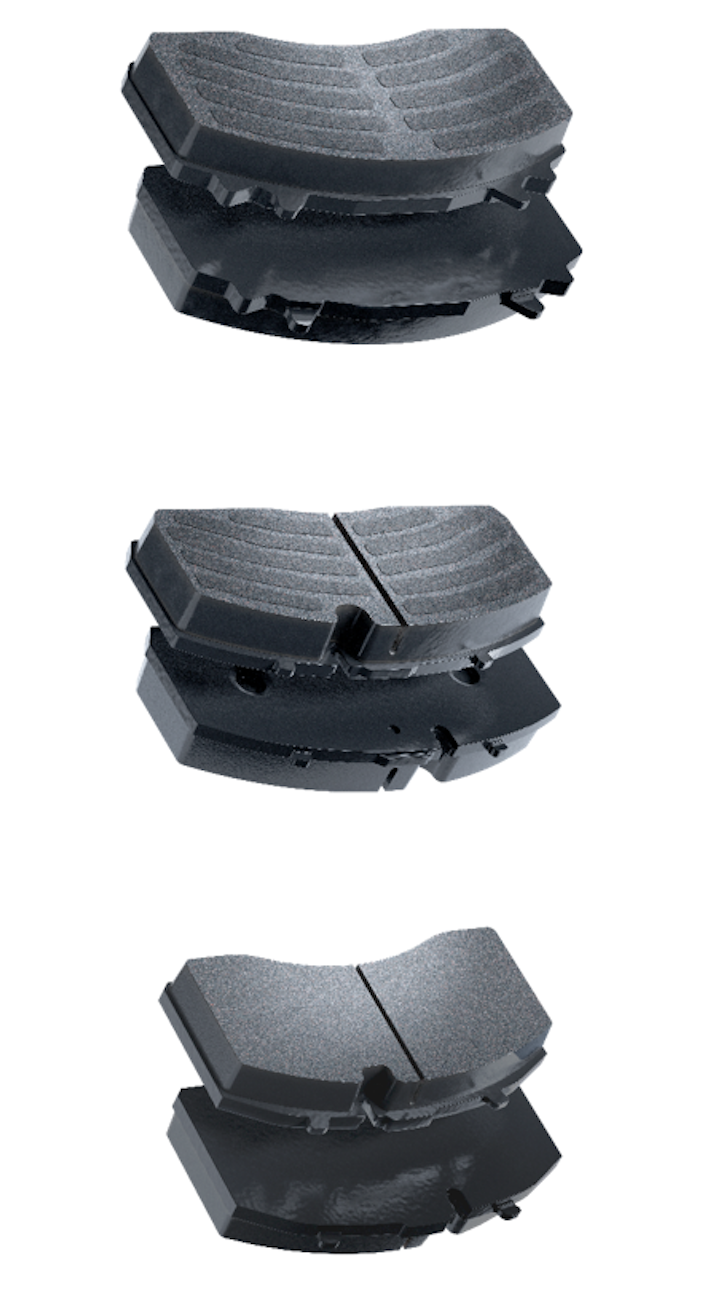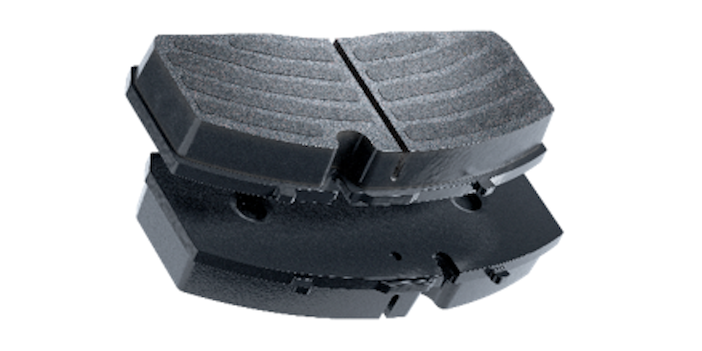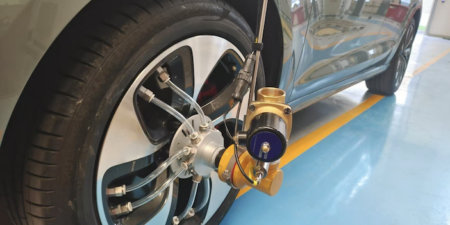Ferodo, the original equipment (OE) braking division of Tenneco, has expanded its range of low- and zero-copper brake pads into the commercial vehicle (CV) sector, particularly for heavy-duty trucks and trailers.
Ferodo says its brake pad formulations meet current and forthcoming environmental legislation without compromising pad performance, allowing customers to sell into markets across the globe with one single specification. Following the OE technical release for CV applications in 2022, the first Ferodo copper-free OE CV brake pads were introduced in series production for truck applications in the North American market. Further projects are underway globally, with series production expected during 2023.
The company’s zero-copper formulations were developed using a tribological fingerprinting process, which identified alternative materials that can provide the same stopping performance, noise, vibration and harshness (NVH) characteristics and durability performance as traditional copper brake pads. Ferodo says its copper-free friction formulations are also compatible with electronic parking brakes, lighter brake calipers and electric vehicle (EV) braking systems.
“We were able to use our light vehicle experience by following a similar development process, but the actual material formulations are quite different for heavy-duty applications,” explained Holger Schaus, VP of global engineering, OE braking, Tenneco. “In the light-duty area, concerns include comfort and convenience factors such as brake noise. With heavy commercial vehicles, safety, friction value stability and corrosion issues predominate due to the vast variety of applications from vocational to long haul, so disc cracking resistance is an important parameter here.”
In Europe, electronic brake systems that provide proper brake force distribution between truck and trailer and highly effective secondary brake systems, have been applied to CVs for more than 20 years. While such brake systems enable a longer lifetime for friction materials, new CV brake material formulations must cope with extended exposure to corrosion and reduced energy introduction.
On the other hand, for highly demanding applications in CV markets outside of Europe that don’t use an electronic brake system, high temperature stability is required as heavily laden trucks descending a long gradient may generate brake temperatures of up to 1,000°C. Ferodo claims that direct comparison testing on articulated trucks has shown that its zero-copper OE CV brake pads withstand the effects of high temperature, meeting or exceeding the service life of conventional pad materials.
In addition to temperature-related parameters, the pads have been validated in field trials for friction, wear, noise, and their effect on disc life for both truck and trailer applications.
Tribological fingerprinting process used in development
As no single raw material provides a direct replacement for copper, Ferodo applied a ‘tribological fingerprinting’ process to assess the range of elements that might be used as alternatives. The development efforts resulted in an innovative combination of alternative raw materials to replace copper, which the engineers found still exceed manufacturers’ brake performance and durability requirements.
“Ferodo’s comprehensive materials expertise allows customers to introduce suitable brake pads well in advance of legislative requirements, further improving their vehicles’ environmental performance and eliminating the need to replace materials later in vehicle product lifecycles,” Schaus said.
Over the last couple of years, legislation in the USA and other countries has restricted the use of copper. Most vehicle manufacturers are therefore seeking global compliance of their new vehicle developments to eliminate complexity from regional variations.
From 2021, copper content, which previously was up to 20%, has been limited to less than 5% (qualifying as low copper). Stricter limits in current legislation require a reduction to less than 0.5%, representing ‘zero-copper’ content.
Ferodo will continue with its development efforts to further reduce copper content in brake pad material formulations to enable compliance with even stricter future environmental legislation.






